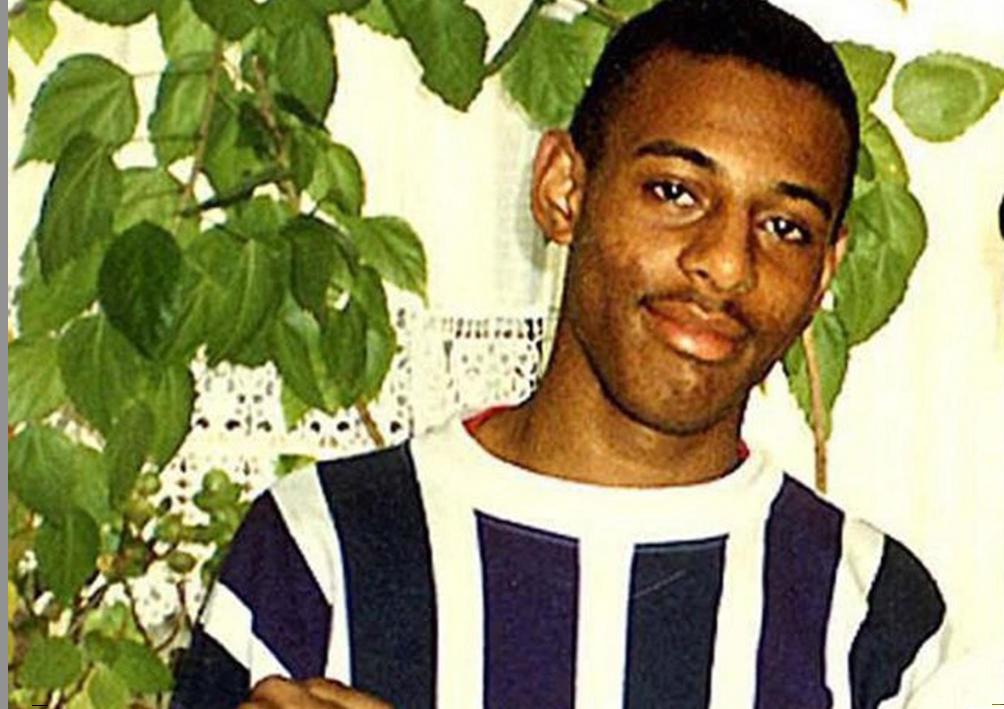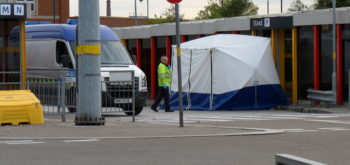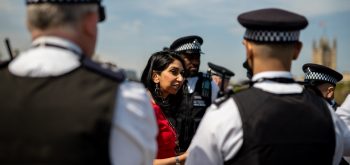The mother of murdered teenager Stephen Lawrence has spoken out about ‘losing confidence’ in the undercover policing inquiry and being ‘exhausted’ by empty promises. Baroness Doreen Lawrence was one of the many victims of undercover police tactics in England and Wales to give evidence alongside testimony from 219 non-state core participants subjected to covert policing.
- You can read Natalie Smith’s profile of Doreen Lawrence on the Justcie Gap here.
‘Baroness Lawrence is losing confidence, if she has not already lost it, in this Inquiry’s ability to get to the truth,’ began her statement to the inquiry led by the judge Sir John Mitting on the seventh day of the inquiry. ‘The truth as to why she, her family and supporters were spied on by the police. This Inquiry is not delivering on what she was promised and is not achieving what she expected.’
The public inquiry is looking at how undercover officers spied on over a thousand different campaigns across the last four decades including women who had no clue of their partner’s true identity; from individuals implicated in and in some cases convicted of criminal activity involving undercover police officers; from those who were the victims of undercover police racism.
Over the last week, the consequences of undercover policing, so-called spycops, have been brought further into the light. Running through the evidence is the undercurrent of disillusionment, both with the police service’s claim of reform and the inquiry’s capability of getting justice for those whose lives have been torn apart by the actions of undercover officers.
The long campaign to bring to justice the racist murderers of Stephen Lawrence was infiltrated on by the now notorious ‘spycops’, members of the ‘Special Demonstration Squad’ who were instructed to go undercover to obtain ‘dirt’ and ‘disinformation’ that would undermine the family. The much delayed inquiry was set up by six years ago by the then home secretary Theresa May after it was revealed that the family were being spied upon.
Doreen Lawrence, in an opening statement given by her longstanding solicitor Imran Khan QC, argued that the racism that led to the murder of Stephen and which resulted in his killers not being convicted for 18 years ‘continues to be rife’.
‘Stephen would now be 46 years’ old,’ she said. ‘His racist murderers, however, are still alive; not a single police officer was disciplined or sacked, rather they were promoted in their careers or are now enjoying their retirement; and many of those that spied upon Baroness Lawrence and her family have, to date, evaded proper scrutiny.’
Khan went to say that Baroness Lawrence was ‘exhausted’ by repeated reassurances from government ministers. ‘Each appears to have been as hollow as the next and some appear downright hypocritical,’ he said. His client called what was happening ‘a secret inquiry in which officer after officer is hiding behind a pseudonym and a screen’. ‘This is not what she asked Theresa May for. This is certainly not what she expected,’ Khan said.
The details of the spycops’ tactics, first reported on by the Observer in 2010 and subsequently confirmed after over a decade of documentaries, interviews and lawyer-led reviews, are shocking. Undercover police officers not only entering into sexual relations with protesters, but were actively sanctioned in doing so by their superiors, encouraged to use ‘promiscuity’ to further infiltrate themselves in radical circles. The stealing of dead children’s’ identities – after the Inquiry issued a public notice to families of children born between 1938 and 1975 who died in childhood, nineteen families were informed that their child’s identity had in some way been used by an undercover police officer. Officers being encouraged, where there was no concrete evidence, to pass on information based on ‘hearsay’ and ‘tittle-tattle’, and in one case allegedly being rewarded for their efforts with a bottle of whisky.
Speaking to the Inquiry on behalf of the Metropolitan Police Service, Peter Skelton QC said that the Met ‘intends to learn, not to justify; and to improve, not to avoid change. It will continue, where appropriate, to recognise errors of the past. It knows that progress and learning demand this.’
However, despite testimony from undercover officer Peter Francis, the Metropolitan Police Service continues to deny that the Stephen Lawrence campaign for justice was the target of covert operations by the SDS, and stand accused by the Lawrence family of ‘gagging’ Francis. Even now, lawyers representing the core participants claim they have been denied any disclosure from the Inquiry after more than five and a half years after obstruction from the Metropolitan Police Service, and that their clients have consequently been denied the ability to participate fully in the inquiry.
Representing core participants, Rajiv Menon QC maintained that the inquiry’s approach ‘amounts to a denial of justice and a denial of access to justice….we are left with an inquiry into undercover policing where some of the proceedings are shrouded in secrecy’.
The inquiry has explicitly stated its intention to discern the motivations of the individual undercover officers, and what support they were given after the end of their undercover deployment. Mention was made too of the background in which protest group infiltration developed – the rapid social change of the 60s and 70s, and government fears that civil unrest could spark something that could seriously threaten British institutions.
Peter Skelton claimed that ‘the overwhelming majority of MPS undercover officers undertook and continue to undertake their duties with dedication, professionalism and bravery.’ A picture was painted of police officers left without support from their superiors, whose mental health deteriorated severely both during and after their undercover operations.
Core participants were concerned that the inquiry’s efforts to empathise with the undercover officers was taking place at the expense of the need of their victims for justice. Baroness Lawrence in particular pointed out that the identity of most of the officers giving evidence has been concealed, arguing not only that the core participants deserved to face them in court, but that it was the public nature of the MacPherson inquiry which prompted recognition of the institutional racism of the Metropolitan Police in the first place.







